We spoke with (a slightly tired but hugely happy) Rosetta Spacecraft Operations Manager Andrea Accomazzo earlier this afternoon and he reports the spacecraft is doing fine!
Here’s a quick update:
- After yesterday’s spectacular receipt of first signal at 19:18 CET, ending 31 months of hibernation, the team have re-established full control over Rosetta.
- All basic parameters have been checked out, and it looks like Rosetta came through hibernation fine.
- For example, the propellant tank temperatures are running now at 7-9 deg C, slightly colder than the 10-15 deg C expected but well within predictions
- Power levels (i.e. electricity available from the huge solar panels) are fine and substantially similar to the levels prior to hibernation.
- The solar arrays appear not to have suffered very much degradation if any during 31 months.
- Team working today to start configuring the solid-state mass memory for use.
- Next big step will be warming up the reaction wheels and then spinning them up for verification; this will take several days.
- Acquisition of signal (AOS) yesterday came 18 minutes later than hoped for, but also well within expectations.
- The slight AOS delay was due to the on-board computer automatically rebooting itself at the beginning of the hibernation exit sequence; the team are looking into this (but Andrea stresses this is not problematic).
- The team have switched the spacecraft’s transmitter to X-band; this means we can now get a decent download rate of about 9 kbps.
- Tracking has been provided via NASA’s Canberra and ESA’s New Norcia stations; NASA Goldstone was on call for backup; from now on the NASA DSN stations will swap roles (Canberra will be on call for back-up).
In summary?
“We’re very happy,” says Andrea. “The exit from hibernation and wake up went about as close to nominal as we could have wished.”

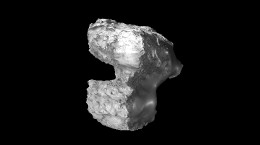
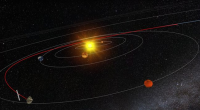
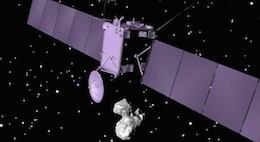
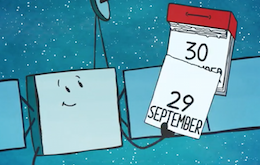
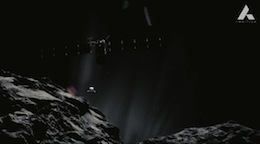
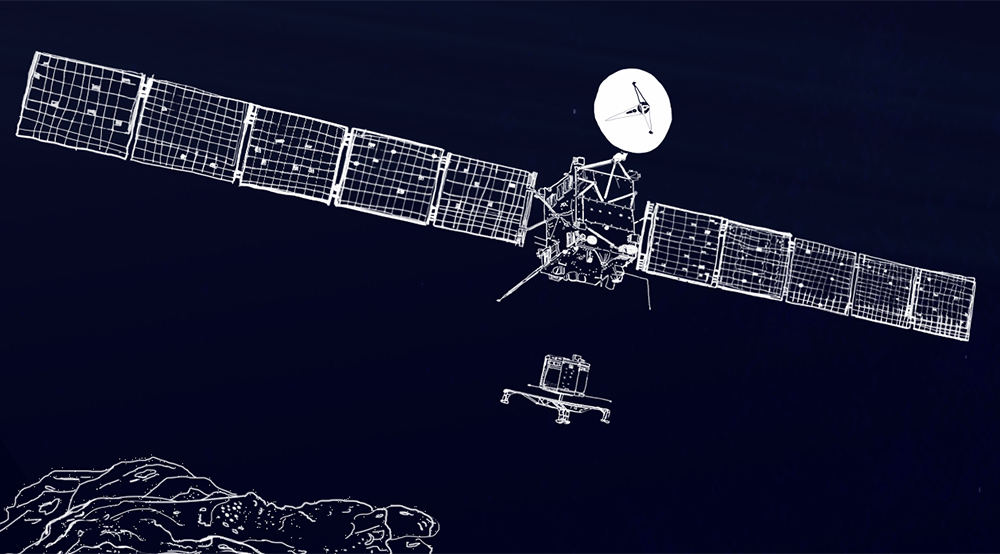
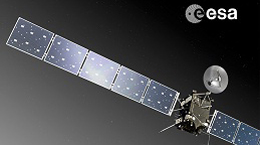
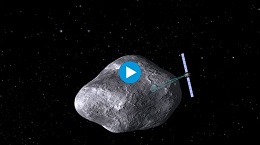
Discussion: 25 comments
“the team are looking into this” – The Team _is_ looking into this. “The team” is a singular noun as a name given to a singular group of people, therefore gets a singular verb.
@Bobby…It depends on where writers and speakers are from. Every country does not follow the ‘rule’ you mentioned above. ‘…team are looking into this…’ is perfectly acceptable and normal in areas of the world outside the United States of America.
It was correct. The team are…
The plural verb can also be used to emphasize the individual members of the group. Especially in the UK.
Or… ‘The team members are looking…’ – there’s more than one way to fix it.
Phil
Rly?
Technically, ‘the team are’ and ‘the team is’ would both be correct, but change the meaning slightly. Using ‘are’ would imply a reference to the collection of people tasked into looking into it, while using ‘is’ would imply a reference to the concept of the entire Rosetta team.
I also believe using ‘is’ all the time is common to English in the US, while using ‘are’ is more popular in English outside the US.
It is not a mistake if you use plural; it emphasizes that you mean all the people in the team…
Great check-up report. Wishing Rosetta, ESA, and the Team continued success!
In spite of some minor grammar problems the misson progess is spectacular.
ESA mission control: Fantastic news! It’s going to be so great following this mission this year. I look forward to images from the NAC in August. Up to 2cm / pixel!
Let’s also hope Rosetta won’t have to do any maneuvering with less than four reaction wheels, though I understand there are methods of dealing with three, at least.
Bobby: Wow. If there had been some linguistic abomination like “should of” I could have understood that reply, “they” / “it” when referring to a group (of people) doesn’t seem valid as a pet peeve.
@Bobby: Sad pedant
Rest of the world is reveling in the marvellous news.
(Now tell me the whole ‘rest of the world’ may not actually be reading this)
Who called the grammar police?
Great news on the health check, keep up the good work!
“The team” is singular in U.S. english usage; “the team” is plural in British english usage. Hence, “are” is correct.
The AOS should probably install windows updates from the last 31 months which explains the 18 minutes delay as well as the unexpected reboot…
Jokes aside: It’s a really great achievement! From now on I’m following this on twitter.
I am wondering how the propellant can be kept at close to 10 degrees Celsius in deep space? Is there enough solar power available for an electric heater even at that distance from the sun? Or is there a small RTG on board just to produce enough heat to keep the spacecraft healthy?
there is an electric heater only, the ESA avoids using RTGs and so far they are pretty good at it.
Rosetta has some really huge Solar panels that are powerfull enough to suplly 250-300 Watts of enegy to the systems, and since the quite well insulation, after the heatup-phase the power usage of the heater will drop significantly.
I do not know about the exact specs, but I think even in hibernation the remaining enegy was still used to kepp the innards warmed up 😛 since there was no better usage for the power anyways 😛
Quite right Bobby. Team, Group, Collective.
In spite of some grammar problems, the mission progress is spectacular
@bobby — not this side of the pond.
https://en.wikipedia.org/wiki/English_plurals#Singulars_with_collective_meaning_treated_as_plural
Bobby,
it looks like a typo that can happen everytime, especially some hours after a successful and crucial space manoeuvre, when the team is ‘slightly tired’…
THANK YOU & CONGRATS TO THE ESA TEAM! ON TO CHURY ! :))
Well that’s British and American English for you. The common convention in British English reporting is for singular nouns denoting groups of people (team, company, party, etc.) to take plural verbs. Basically we happily massacre noun-verb agreement when it “sounds better” to us. And given that the ESA is European, I think this blog probably follows British English style guidelines. It looks like Daniel has hedged his bets though, using one plural verb, one singular one (“The team has switched…”) and one indeterminate.
It depends on whether you’re American or British. American English treats collective nouns like the Team, the Government, etc. as singular; British English treats them as plural. ESA, logically, uses British English.
According to the rendezvous plan, Rosetta will start to take pictures of the comet soon. Do you have an estimated date for that, and will the pictures be made available on this website?
Thanks and congratulations
Fox
Congratulations to Rosetta team!
I’ve watched the mission from 90’s and browsed the concepts of Philae during the development. I was also feeling pretty low when the Ariane 5 ECA didn’t work as expected and resulted in change of target comet.
Now, after all those years and waiting I felt very emotional when the signal came through in live video feed. I had to wipe couple of tears away from the corner of my eye, but I was feeling very happy and relieved too!
I can hardly wait to see the Rosetta closing in to the comet and see the Philae finally landing there. I hope the best for the mission controllers and the scientists!
Great Job and a new step since the launch 10 years ago ! I hope Jacques Louet who knows all Rosetta’s wherabouts was not far to follow this Wake-up stage, prior to the expected landing on TG later this year !! Congrats to all !